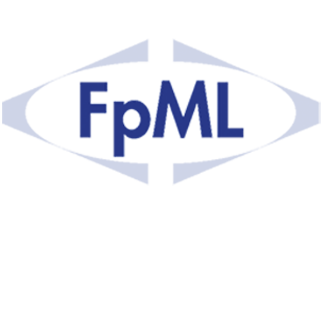Key Benefits
FpML automates the flow of information in the derivatives market across asset classes and business processes in the pre-trade, trade and post-trade space. Financial instruments are specified in a format that is readable to both computers and humans. This standard reduces implementation costs for integrating systems internally and with business partners. Using FpML reduces operational risks while increasing business opportunities.
Contact
FpML is an open-source standard, so it is accessible to everyone. For more information or to join one of the working groups, visit the FpML website or contact info@fpml.org.
About FpML
The FpML standard is free to license and is intended to automate the flow of information between derivatives market participants, regardless of their underlying software or hardware infrastructure. It is based on Extensible Markup Language (XML), which is the standard text-based meta language for describing data shared between applications.
As the derivatives market has evolved since the global financial crisis, FpML has become the underlying standard that describes the messages and data requirements linked to various business processes, from electronic execution to central clearing and trade reporting.
FpML is used by dealers, asset managers, hedge funds, service providers and technology companies and can be customized to the needs of individual users.
Features
- FpML defines ‘templates’ (structure and semantics) using XML language for exchanging data on the over-the-counter derivatives market.
- It provides the standard data content and structure to exchange derivatives transactions electronically and is widely used as a standard for electronic message communication.
- Product coverage includes interest rates, credit, equity, FX, commodities, securities and loans.
- In addition to product descriptions, FpML defines business processes and the data that needs to be exchanged within these processes, as well as the message flows.
- Business process coverage includes request for quote, confirmation, affirmation, novations, terminations, increases, amendments, credit event notices, allocations, cashflow matching and portfolio reconciliation.
Product Coverage
- Interest Rate Derivatives
- Interest rate swaps
- Swaptions
- Forward rate agreements
- Caps and floors
- Inflation swaps
- Bullet payments
- Foreign Exchange
- Spot
- FX swaps
- FX forwards
- FX options
- Credit
- Credit default swaps
- Credit default indexes
- Baskets
- Equity
- Equity swaps
- Equity options
- Variance swaps
- Total return swaps
- Commodity
- Commodity underlyings
- Commodity swaps
- Commodity options
Fact Sheets/Presentations
- August 2024: FpML 5.13 Fourth Working Draft
- November 2023: FpML 5.13 Third Working Draft
Press Releases/Blogs
- August 15, 2024: ISDA publishes FpML 5.13 Fourth Working Draft (build 4)
- July 12, 2024: ISDA Reference Data Survey
- December 12, 2023: ISDA updates FpML code lists to Genericode 1.0 & added style sheet for presentation
- November 20, 2023: ISDA publishes FpML 5.13 Third Working Draft (build 3)
- November 20, 2023: ISDA has republished the Recommendation for FpML version 5.5 (Build 14)
- November 15, 2023: ISDA to update FpML code lists to Genericode 1.0
- July 31, 2023: ISDA publishes FpML 5.13 Second Working Draft (build 2)
- November 30, 2022: ISDA publishes FpML 5.13 First Working Draft (build 1)
- September 28, 2021: ISDA publishes the Recommendation for FpML version 5.12 (build 4)
- September 10, 2021: ISDA has published FpML 4.2 Trial Recommendation (build 13)
- August 17, 2021: ISDA has published FpML 4.2 Trial Recommendation (build 11)
- July 23, 2021: ISDA has published FpML versions 5.12 and 4.2 Trial Recommendation
- May 19, 2021: ISDA has published FpML versions 5.12 (build 2) and 4.2 (build 9) Last Call Working Draft
- March 29, 2021: ISDA has published the First Working Draft for FpML version 5.12 (Build 1)
- November 17, 2020: ISDA releases version 1.0 of Regulatory Reporting Analysis App
- July 28, 2020: ISDA has republished the Recommendation for FpML version 5.11 (Build#9)
- June 26, 2020: ISDA has republished the Recommendation for FpML version 5.5 (Build#11)



